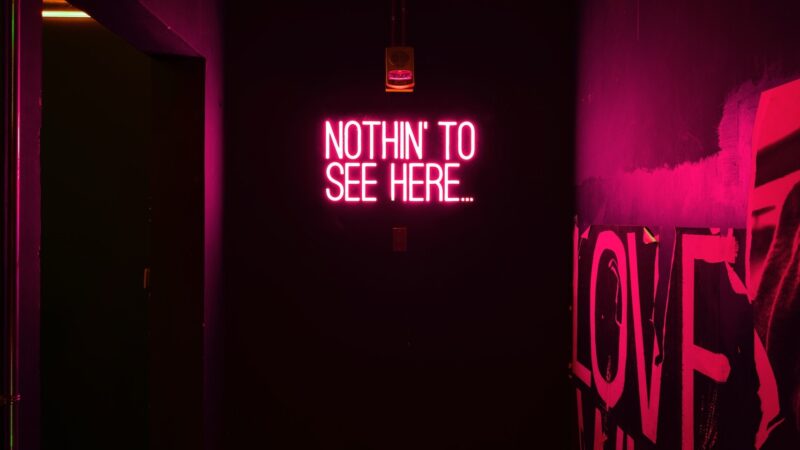The Nationalist Case for Caution
Over the last few weeks, we’ve been experiencing a rare phenomenon; politicians seem to have grown a spine. There’s tough talk of deportations and standing up to Islamic extremism. It’s far too good to be true. Many MPs and our Prime Minister have been living vicariously through Israel, springing to the defence of the Israelis and British Jews with extreme fervour. Cross-party leader support from Sunak and Starmer has been unwavering.
However, whilst the latter is facing rebellion from his immigrant and militant leftist contingent as Israeli aggression continues unabated, Sunak engaged in the humiliation ritual of meeting Israeli leaders at the King David Hotel. I’m unsure if a meeting between a sitting British PM and the Israeli leadership has been held there since Jewish terrorists bombed it, killing many Britons, but it’s certainly something I would not like to see again from a future PM.
The conflict in this area of the world does not particularly interest me. There are so many domestic problems facing Britain that I am somewhat dismayed that the sclerotic and otherwise necrotic government can rapidly reanimate when something so detached from us reaches their desks. As this latest crisis has rolled along several unfortunate reality checks have hit Britain. In an ideal world, we could completely wash our hands of it, but we are not in that position. Imported ethnic conflicts are coming to fruition and we need to navigate them as best we can.
Many Israelis were killed and over 100 hostages were taken, Israel retaliated with its usual tactic of bombing Gaza with extreme prejudice. The actions of Hamas provoked disgust from the wider British public, seeing people murdered in their homes does not sit particularly well, or so you would have thought. After the Israel response, pro-Palestinian demonstrations erupted across the UK. Among the usual suspects of white leftists was a sizeable ethnic minority contingent. London drew the most attention, at home and internationally, and most of the attendees were of minority ethnic backgrounds.
Between the messages of “Free Palestine” and “From the River to the Sea” less familiar ones started to emerge; the idea that what Hamas had achieved was anti-colonialism in action. This is where alarm bells should begin to ring, especially if you have been listening to leftist talking points in recent years or paying attention to protest actions. If decolonisation was not in fact simply tearing down statues or renaming streets but murdering your “oppressors” then perhaps this large and young contingent of resentful ethnic minorities could turn out to be a life-threatening problem. As the country moves toward the White British becoming a minority, as in London, this is a ticking time-bomb. When you see at the most recent protest, in which White people are attacked for defending the Cenotaph and being called “White Trash” by immigrants, the nature of this protest as anti-White decolonisation action becomes more clear.
MPs and media personalities began the tough talk immediately. “Deportations for anti-semitic students” and possible prison time for Hamas supporters. Nothing so far has come to fruition in that regard and deportations are unlikely to happen because the Tories have failed to dismantle the legal apparatus that allows the successful appealing of deportation efforts. Deportation efforts that are consistently hampered by an industry of state-leeching legal practices and lawyers. A more devious development appeared during the most recent protest with the publishing of an article exploring the “English roots of anti-Semitism.” A feeble attempt to paint these events as originating as a native White issue or an extension of historical anti-Semitism, not something artificially imported.
It was at this point I began to think “Where was this talk when minority rape gangs were exposed or terrorist attacks were carried out here?” It was non-existent. We were actually encouraged to “Not look back in anger” with special government networks rolling out I “heart” (city/town affected by terrorism) almost immediately and a deafening silence with regard to the former. Anybody that has spoken out about these issues has been frequently demonised or silenced, they have not enjoyed even a fraction of Government support that Israel and British Jews have received over the last few weeks.
In response to the hostage crisis in Israel, British Jews have been running a poster campaign and projecting the images on the back of trucks in London. These efforts have been disrupted in the form of posters being torn down or the vehicles being stopped by the police themselves for the sake of “public order.” The people doing a substantial amount of the poster tearing have been minorities and in a particularly amusing clip a Jewish man states to an unconcerned Black woman that he “supported Black Lives Matter.” For him he had been a good ally how could these people betray them? Don’t they know they’re only meant to undermine White British society? The great irony that many British Jews are pro-immigration and support leftist causes that have led to this is not lost on us. Indeed, many leftist Jews were marching for Palestine in a somewhat annihilationist expression of self-determination.
The police have been no less cowardly than usual in their reactions. Violent rhetoric against Jews and Israel, actual calls to Jihad, being hand waved away by the police. As one would expect British people with Union flags or the St. George’s Cross have been arrested, escorted away or spoken to with typical condescension. Since the Oldham and Bradford riots the British police have been deathly afraid of policing minority issues for fear of them rioting or triggering acts of terrorism. This fear needs to be presented to the public as the police are utterly incapable of presenting this issue themselves. We saw a little bit of spine from the armed officers a few weeks ago but they have since stood down, happy to operate in a system that oppresses Whites and one that will throw them under the bus for political expedience. I’m not sure what is going on with the police in the UK; large swathes captured by leftists is the easiest answer, but many officers must be “lying back” and “thinking of the pension.” In the most recent protests we have seen police officers injured, although it’s hard to muster sympathy. Police support on the Right is definitely on the wane.
The online nationalist space has been interesting. Many Third-Positionists have naturally aligned themselves with Palestine and other aggrieved minorities in order to “strike out” at “Jewish power structures” and to rebuke Israel itself as a “colonial holdout.” Fundamentally, the minorities they are in a temporary alliance with see no difference between Jews/Israelis and Whites. Their incredibly short-sighted tactic is stoking anti-White rhetoric that is all too often used to put White British interests down.
The counter-jihad types have once again insisted that this is proof that we are indeed in a civilisational war with Islam, but I tentatively disagree. We have a demographic problem that extends beyond the Islamic population here. This should not be a theological debate, it’s a question of race; the preservation of the White British. I would be lying if I said that the large protests taking on Islamic characteristics didn’t alarm me. It’s as if we were seeing a vision of the future. The prospect of large Islamic voting blocs is something that could have us leaning more on the counter-jihad ideology in the future. Thankfully our electoral system suppresses this somewhat, although that itself is a double-edged sword suppressing us.
Others have seen the Government’s bold talk of deportations as a good opportunity for us to begin broaching the demographic question. I am not convinced that pushing this under the guise of dealing with “anti-Semitism” will serve us in any real capacity long term. Like all rushed legislation, it actually has the ability to hurt us in the long run; you set the precedent that anti-Semitism is somehow antithetical to life in Britain then many similar pieces of legislation could follow. We are already staring down the possibility of a Labour government that wants to make “misogyny” a “hate crime”, we don’t need more restrictions to speech before then if they can be avoided.
One silver lining from this mess, if not a vehicle to directly push deportations, is that it shows the obvious failure of the enforced multiracial project we call Multiculturalism. The success of this project has been so heavily disputed in recent weeks after being somewhat cynically trotted out by Suella Braverman. One other potential benefit is that it once again allows us to hammer home the point about the blocks to deportations from the ECHR as well as the legal practices opposing them being funded by the taxpayer.
The left has revealed its agenda by living vicariously through the actions of Hamas and the government has revealed their priorities in jumping to the defence of Israel and British Jews. Nationalists are effectively homeless; we have to advocate for ourselves. Leading from our principles towards our goals and not simply hoping to achieve something by serving others who have so often opposed us. Immigration, repatriation, withdrawal from the ECHR, smashing the Equality Act and Human Rights Acts, are all things that take precedence. Can we take a step toward doing any of these things with this crisis? Undoubtedly, but we must be cautious.










Cause for Remembrance
As the poppy-adorned date of Remembrance Sunday moves into view, with ceremonies and processions set to take place on the 12th November, I couldn’t help but recall a quote from Nietzsche: “The future belongs to those with the longest memory.”
Typical of seemingly every Nietzsche quote it is dropped mid-essay with little to no further context, moulded to fit the context of the essay being written with little to no regard for the message which Nietzsche is trying to convey to the reader; a message which journalist and philosopher Alain de Benoist outlines with expert clarity:
For Nietzsche, a fixation on remembrance, on recollecting everything that has been and everything that will be, keeps us rooted in our regrets and our failures; it deprives us of the joys which can be found in the present moment and breeds resentment in the minds of men.
As such, it is wise to be select with what we remember and how we remember it, should we want to spare ourselves a lifetime of dizzying self-pity and further dismay. In my mind, as well as millions of others, the most destructive wars in human history would qualify for the strange honour of being ‘remembered’, yet so too would other events, especially those events which have yet to achieve fitting closure and continue to encroach upon the present.
As of this article’s publication, it is the 20th anniversary of the disappearance of Charlene Downes, presumed murdered by the Blackpool grooming gangs. At the time of her murder, two Jordanian immigrants were arrested. Iyad Albattikhi was charged with Downes’ murder and Mohammed Reveshi was charged with helping to dispose of her body. Both were later released after denying the charges.
Currently, the only person sentenced in relation to the case was Charlene’s younger brother, who was arrested after he punched a man who openly joked that he had disposed of Charlene’s body by putting it into kebabs, according to witness testimony; information which led the police to change their initial missing person investigation to one of murder.
As reported in various media outlets, local and national, throughout their investigation, the police found “dozens more 13- to 15-year-old girls from the area had fallen victim to grooming or sexual abuse” with an unpublished report identifying eleven takeaway shops which were being used as “honeypots” – places where non-white men could prey on young white girls.
Like so many cases of this nature, investigations into Charlene’s murder had been held up by political correctness. According to conservative estimates, Charlene is just one of the thousands of victims, yet only a granular fraction of these racially motivated crimes has resulted in a conviction, with local councillors and police departments continuing to evade accountability for their role in what is nothing short of a national scandal.
However, it’s not just local officials who have dodged justice. National figures, including those with near-unrivalled influence in politics and media, have consistently ignored this historic injustice, many outrightly denying fundamental and well-established facts about the national grooming scandal.
Keir Starmer, leader of the Labour Party and likely the next Prime Minister, is one such denialist. In an interview with LBC, Starmer said: “the vast majority of sexual abuse cases do not involve those of ethnic minorities.”
If meant to refer to all sexual offences in Britain, Starmer’s statement is highly misleading. Accounting for the 20% of cases in which ethnicity is not reported, only 60% of sexual offenders in 2017 were classed as white, suggesting whites are underrepresented. In addition, the white ethnic category used such reports includes disproportionately criminal ethnic minorities, such as the Muslim Albanians, who are vastly overrepresented in British prisons, further diminishing the facticity of Starmer’s claim.
However, in the context of grooming gangs, Starmer’s comments are not only misleading, but categorically false. Every official report on ‘Group Sexual Exploitation’ (read: grooming gangs) has shown that Muslim Asians were highly over-represented, and the most famous rape gangs (Telford, Rotherham, Rochdale) along with high-profile murders (Lowe family, Charlene Downes) were the responsibility of Asian men.
As shown in Charlie Peters’ widely acclaimed documentary on the grooming gang scandal, 1 in every 1700 Pakistani men in the UK were prosecuted for being part of a grooming gang between 1997 and 2017. In cities such as Rotherham, it was 1 in 73.
However, according to the Home Office, as they only cover a subset of cases, all reports regarding the ethnic composition of grooming gangs necessarily reject large amounts of data. As such, they estimate between 14% (Berelowitz. 2015) and 84% (Quilliam, 2017) of grooming gang members were Asian, a significant overrepresentation, and even then, these figures are skewed by poor reporting, something the reports make clear.
One report, which focused on grooming gangs in Rotherham, stated:
Another report, which focused on grooming gangs in Telford, stated:
If crimes committed by Asians were deliberately not investigated, whether to avoid creating ethnic disparities to remain in-step with legal commitments to Equality, Diversity, and Inclusion, or to avoid appearing ‘racist’ in view of the media, estimates based on police reports will be too low, especially when threats of violence against the victims is considered:
Overall, it is abundantly clear that deeds, not words, are required to remedy this ongoing scandal. The victims of the grooming gang crisis deserve justice, not dismissal and less-than-subtle whataboutery. We must not tolerate nor fall prey to telescopic philanthropy. The worst of the world’s barbarities will not be found on the distant horizon, for they have been brought to our shores.
As such, we require an end to grooming gang denialism wherever it exists, an investigation by the National Crime Agency into every town, city, council and police department where grooming gang activity has been reported and covered-up, and a memorial befitting a crisis of this magnitude. Only then will girls like Charlene begin to receive the justice they deserve, allowing this crisis to be another cause for remembrance, rather than a perverse and sordid aspect of life in modern Britain.
Photo Credit.